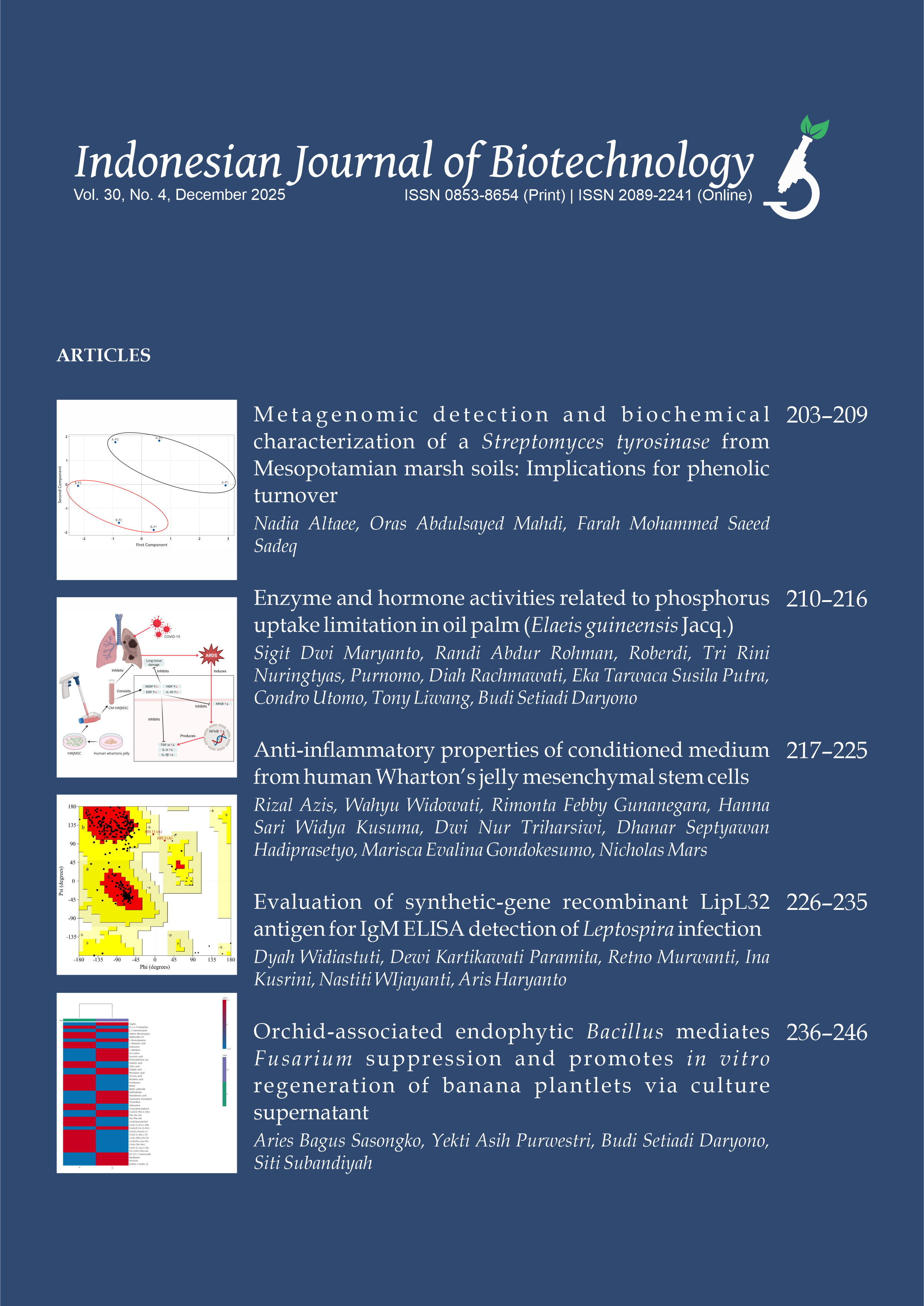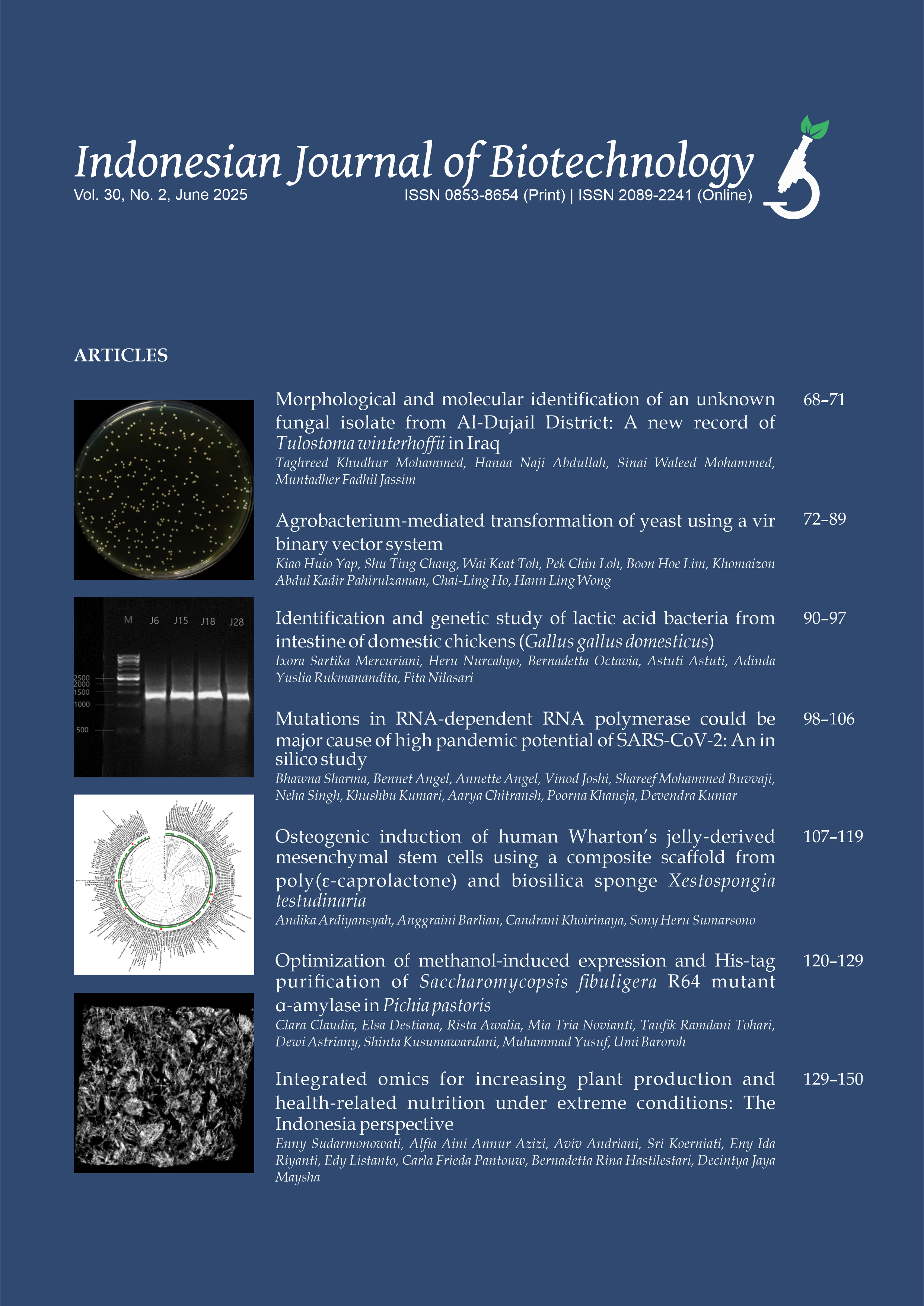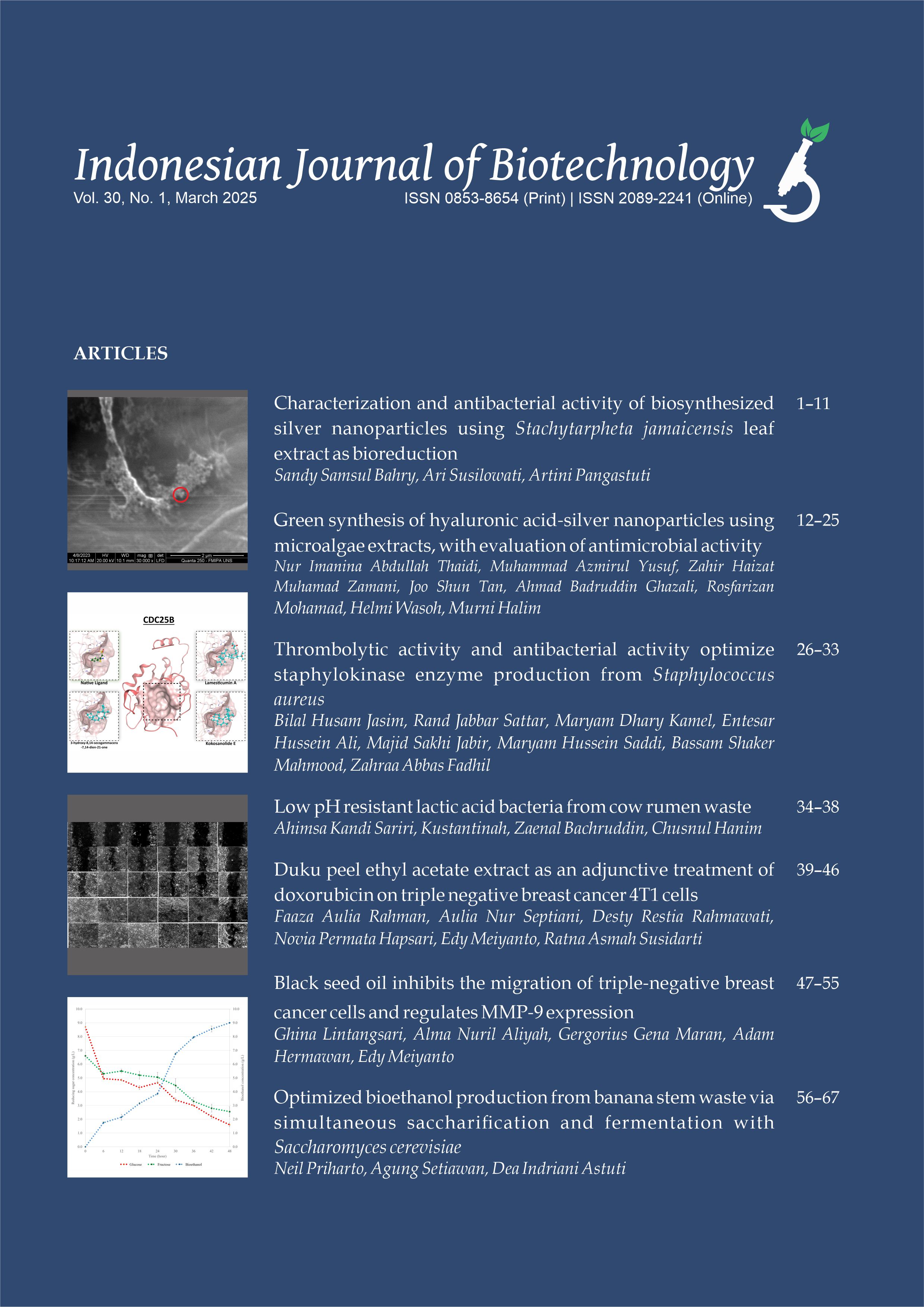Marker Assisted Selection for Bacterial Leaf Blight Rice Mutant Lines Resistant
A. Aryanti(1), A. Almaida(2*), Rika Heryani(3), Nana Supriatna(4)
(1) Centre for Isotopes and Radiation Application, BATAN, Indonesia
(2) Centre for Isotopes and Radiation Application, BATAN, Indonesia
(3) Centre for Isotopes and Radiation Application, BATAN, Indonesia
(4) Centre for Isotopes and Radiation Application, BATAN, Indonesia
(*) Corresponding Author
Abstract
Induction of mutation using gamma rays for improving of Mira-1 rice variety has been conducted.
Rice mutant lines M2 generation have been obtained from mutation by the doses of 25, 50, 75, 100, 150 and
200 Gy of gamma rays. Selection of mutant lines tolerant to the disease was only observed in the field neither
genetically. Marker assisted selection is a tool to obtain a new rice variety tolerant to the disease of bacterial
leaf blight (BLB) genetically. Xanthomonas oryzae pv.oryzae (Xa) was the pathogen of BLB, and the identification
of rice mutant lines which were containing of Xa5, Xa13 and Xa21 genes have been done using Polymerase
Chain Reaction ( PCR ) method. The result showed that one mutant line, and four mutant lines from mutation
by the doses of 25 Gy and 150 Gy were containing Xa5, Xa13 and Xa21 genes the same as that of Code rice
variety as positive control, and none in Kencana Bali rice variety as negative control. Mira-1 rice variety as the
parent plant was only contains Xa5 and Xa21 genes. The doses of 50 Gy and 100 Gy were very affective on
removing of all bands for identification of those genes. The purpose of this research was to obtain the mutant
lines which were contain of those Xa genes as indicator for resistant to BLB disease genetically.
Rice mutant lines M2 generation have been obtained from mutation by the doses of 25, 50, 75, 100, 150 and
200 Gy of gamma rays. Selection of mutant lines tolerant to the disease was only observed in the field neither
genetically. Marker assisted selection is a tool to obtain a new rice variety tolerant to the disease of bacterial
leaf blight (BLB) genetically. Xanthomonas oryzae pv.oryzae (Xa) was the pathogen of BLB, and the identification
of rice mutant lines which were containing of Xa5, Xa13 and Xa21 genes have been done using Polymerase
Chain Reaction ( PCR ) method. The result showed that one mutant line, and four mutant lines from mutation
by the doses of 25 Gy and 150 Gy were containing Xa5, Xa13 and Xa21 genes the same as that of Code rice
variety as positive control, and none in Kencana Bali rice variety as negative control. Mira-1 rice variety as the
parent plant was only contains Xa5 and Xa21 genes. The doses of 50 Gy and 100 Gy were very affective on
removing of all bands for identification of those genes. The purpose of this research was to obtain the mutant
lines which were contain of those Xa genes as indicator for resistant to BLB disease genetically.
Keywords
bacterial leaf blight (BLB); marker assisted selection; PCR; Xa; rice mutant lines
Full Text:
PDFArticle Metrics
Refbacks
- There are currently no refbacks.
Copyright (c) 2016 A. Aryanti, A. Almaida, Rika Heryani, Nana Supriatna

This work is licensed under a Creative Commons Attribution-ShareAlike 4.0 International License.









